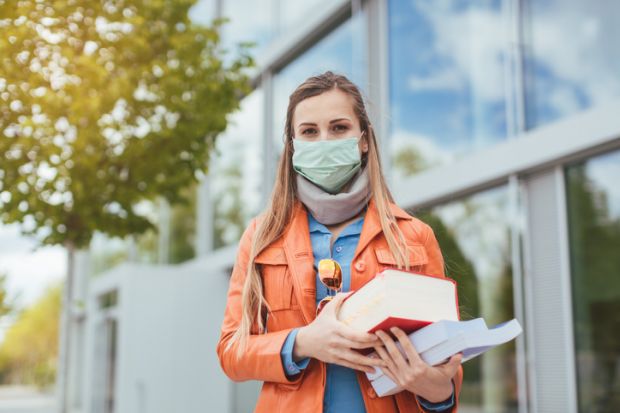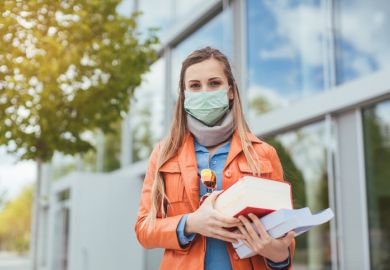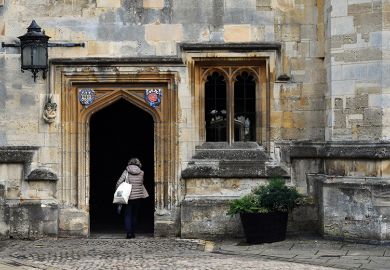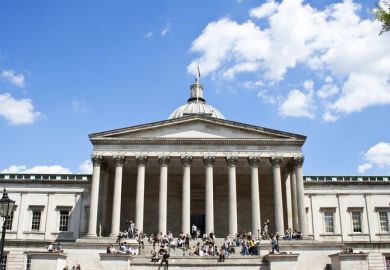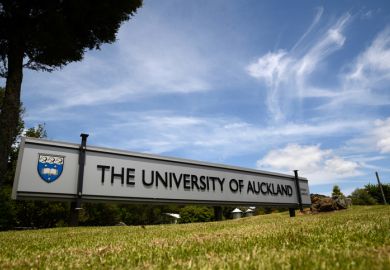The Westminster government is “strongly advising” that staff and students in English universities wear face coverings in communal areas, in response to the new Omicron variant of Covid-19.
The Department for Education guidance, which also covers visitors to campuses and applies from 29 November, was issued after the government once again made the wearing of masks compulsory in shops and on public transport.
Most of the existing guidance remains unchanged, and the DfE said the new measures were “temporary and precautionary” and would be reviewed in three weeks.
The department said universities should continue to encourage staff and students to test themselves for coronavirus twice weekly using lateral flow tests, and to get vaccinated. The current guidance on contact tracing and isolation – which means that close contacts should take PCR tests but do not need to isolate unless they are unvaccinated – also remains in place. The exception is close contacts of suspected or confirmed Omicron cases, who will be asked to isolate for 10 days.
How much difference the shift in government advice would make remained to be seen because most institutions had already been encouraging or requesting that students and staff wear face coverings on campus.
Debate has instead focused on academics’ calls for mask-wearing to be mandatory, and on whether such requirements should apply within classrooms as well as in communal areas.
Nadhim Zahawi, the education secretary, said that news of the Omicron variant, which scientists believe may be more transmissible than previous versions of the virus, would “understandably cause concern for people”.
“We are already taking targeted and proportionate action as a precaution while we find out more information about the new variant. As we do so, we will continue to prioritise children’s and young people’s education and well-being, making sure education and childcare settings are as safe as possible,” he said.
The emergence of the Omicron variant has also led to changes in travel rules, with all arrivals in the UK required to take a PCR test within 48 hours of arrival, and mandatory self-isolation being imposed until they receive a negative result.
A number of African nations have been added to the travel red list, meaning that nationals of these countries are barred from entering England, with similar rules applying in much of the rest of the UK. These countries are: Angola, Botswana, Eswatini, Lesotho, Malawi, Mozambique, Namibia, South Africa, Zambia and Zimbabwe.
Register to continue
Why register?
- Registration is free and only takes a moment
- Once registered, you can read 3 articles a month
- Sign up for our newsletter
Subscribe
Or subscribe for unlimited access to:
- Unlimited access to news, views, insights & reviews
- Digital editions
- Digital access to THE’s university and college rankings analysis
Already registered or a current subscriber? Login
